Understanding the Need for Proper Footwear on Concrete
Concrete surfaces can be unforgiving, especially for those who spend long hours standing or walking on them. Whether you’re in construction, retail, or any job that requires being on your feet all day, the right footwear is essential for comfort and health. Concrete is hard and rigid, which can lead to foot fatigue, joint pain, and long-term musculoskeletal issues if proper care isn’t taken to protect your feet.
Studies show that prolonged exposure to hard surfaces can negatively affect your posture and overall body mechanics (source: NCBI). Adequate support and cushioning are crucial in minimizing these effects. This article will guide you through the best footwear options to keep your feet happy while working on concrete.
Features to Look for in Concrete Work Shoes
Cushioning
Good cushioning is vital. Shoes should have adequate padding that absorbs impact. Look for EVA (Ethylene Vinyl Acetate) or polyurethane insoles that offer a soft yet supportive base.
Arch Support
Proper arch support is essential for maintaining foot alignment. Shoes with built-in arch support help distribute weight evenly and reduce strain on the feet and legs.
Stability and Support
Look for shoes that offer stability features like reinforced heel counters. This improves overall foot support and reduces the risk of rolling an ankle or experiencing foot fatigue.
Slip Resistance
Concrete can be slippery, especially when wet. Choosing shoes with slip-resistant soles can significantly reduce the risk of accidents, making this a non-negotiable feature for work footwear.
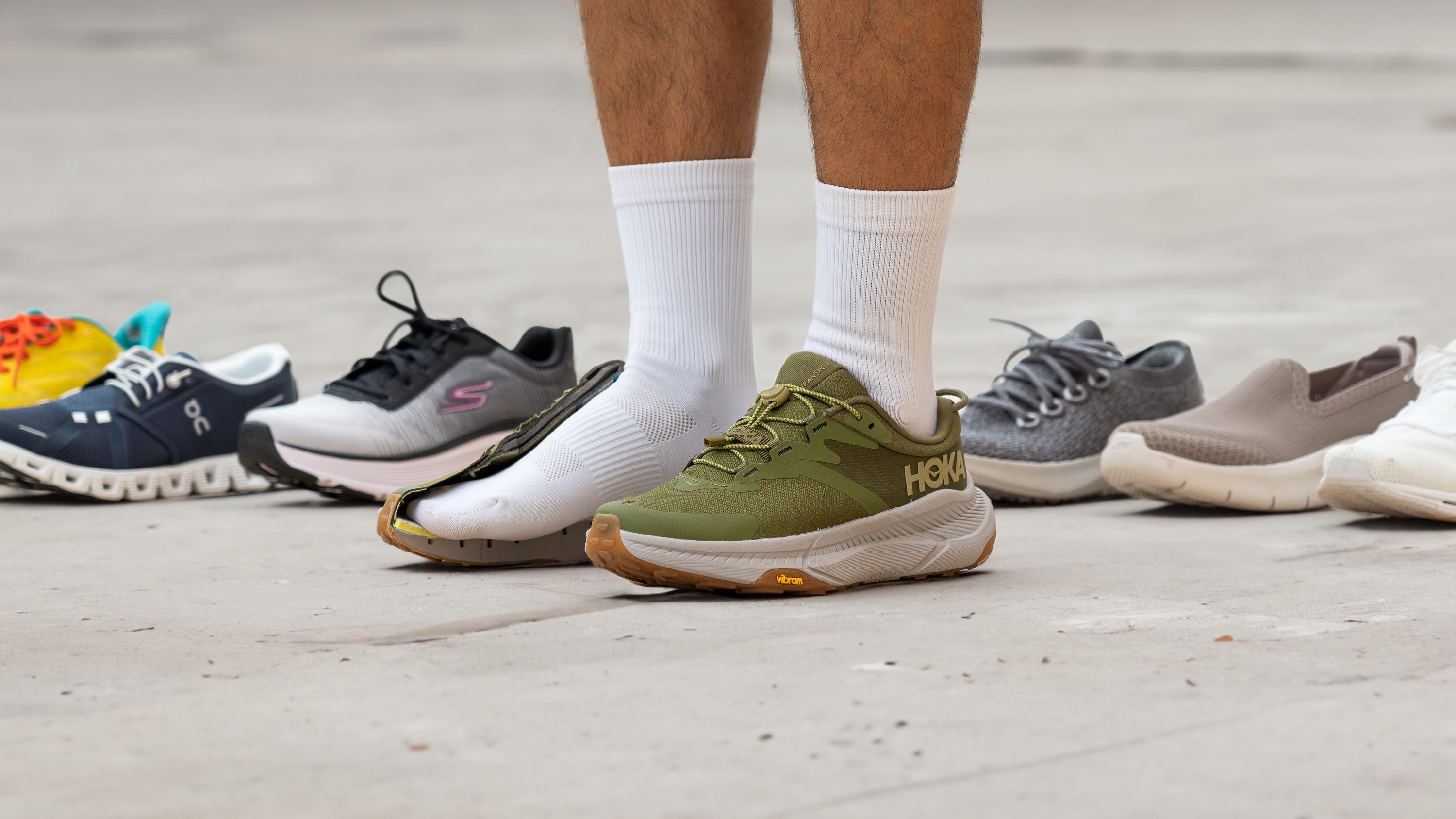
Breathability
Long hours on your feet can lead to moisture buildup and discomfort. Shoes made with breathable materials help wick away sweat and keep your feet cool.
Top Picks for Working on Concrete
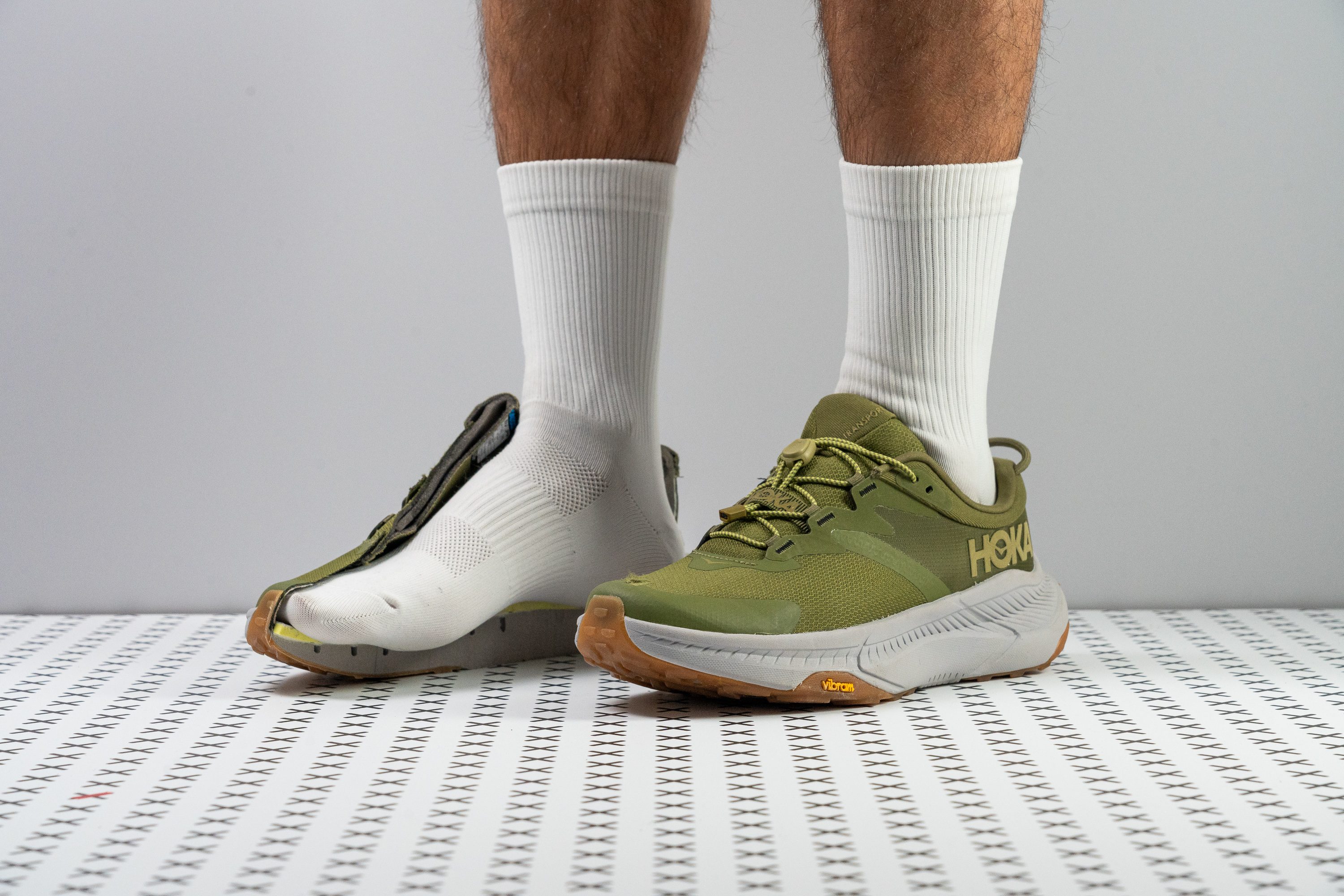
1. Skechers Work Sure Track
The Skechers Work Sure Track shoes are well-known for their comfort and durability. They feature a memory foam insole that offers excellent cushioning, making them ideal for long hours on concrete floors.
Pros:
- Memory foam cushioning for comfort
- Slip-resistant outsole
- Stylish design
Cons:
- May require a break-in period
2. Timberland PRO Men’s 6\” Pit Boss Soft Toe Work Boot
These work boots are rugged, flexible, and provide excellent arch support. They have a soft toe, making them a great option for those who need protection without the weight of a steel toe.
Pros:
- Durable leather construction
- Excellent shock absorption
- Oil- and slip-resistant soles
Cons:
- Higher price point
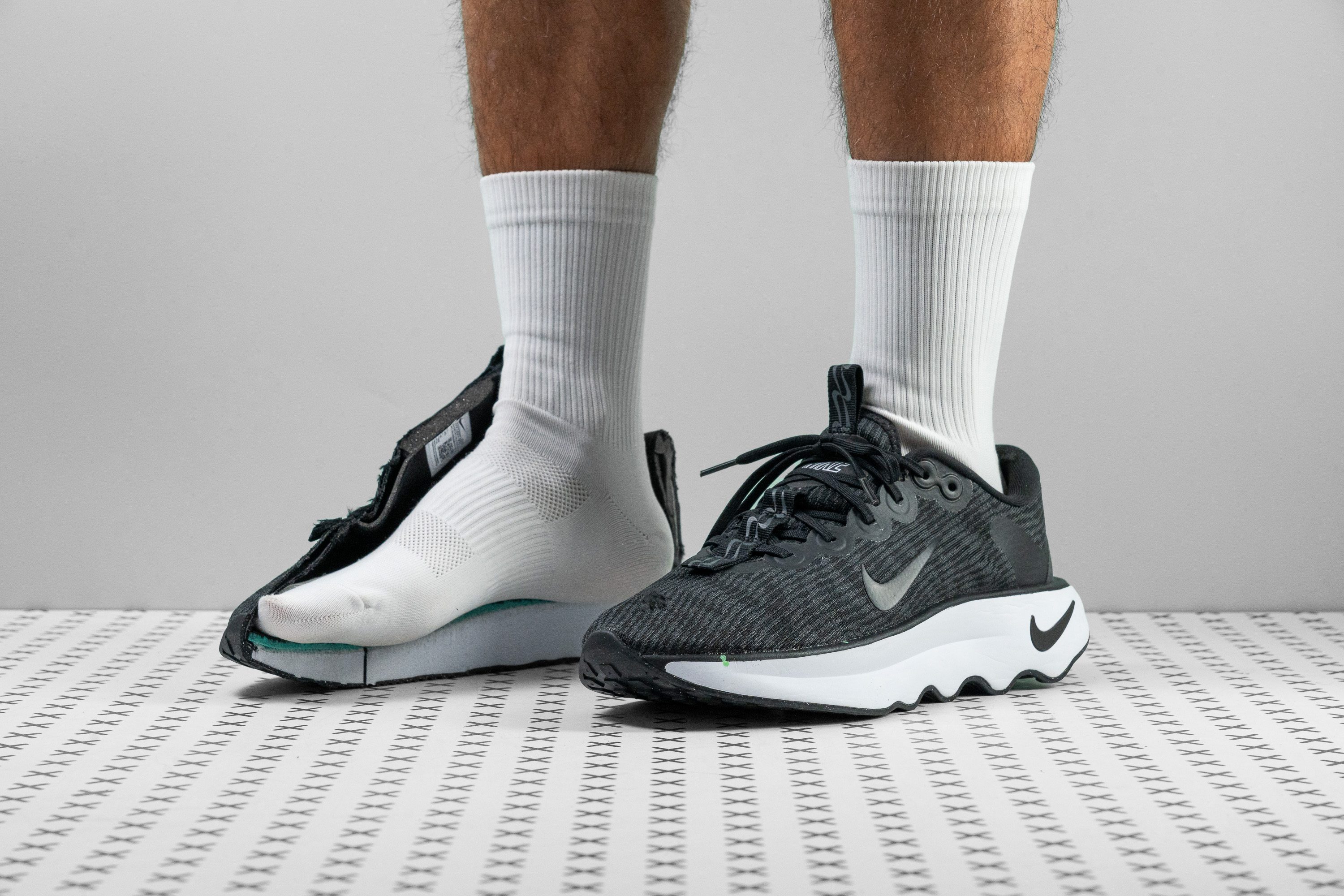
3. New Balance 626v2
The New Balance 626v2 features a lightweight design with great support. It is also slip-resistant, making it perfect for working on concrete surfaces.
Pros:
- Lightweight and breathable
- Removable inserts for custom fit
- Excellent grip
Cons:
- Availability may vary
4. Adidas Ultraboost 21
While primarily a running shoe, the Adidas Ultraboost 21 offers phenomenal cushioning and support, making it a great option for those who walk or stand on concrete for their jobs.
Pros:
- Exceptional energy return
- Eco-friendly materials
- Sleek design suitable for casual wear
Cons:
- Not specifically designed for work conditions
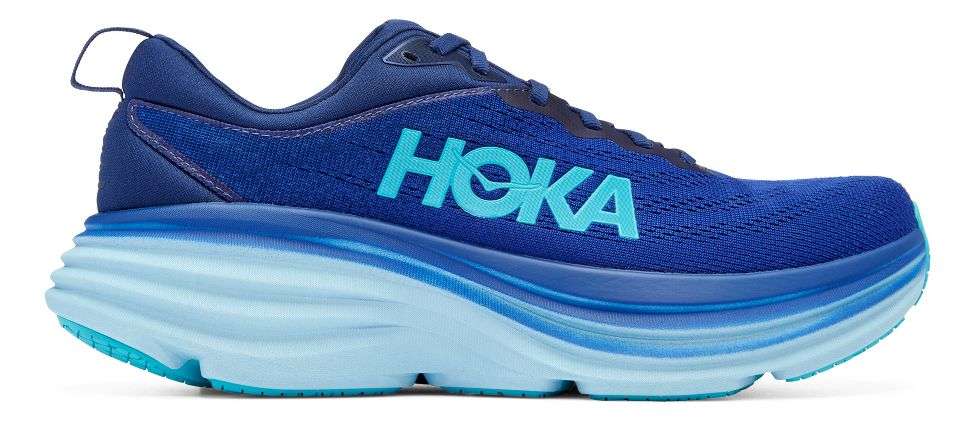
5. Caterpillar Men’s Second Shift 6\” Steel-Toe Work Boot
The Caterpillar Second Shift boots are ideal for those who need steel-toe protection while remaining comfortable on concrete. They are sturdy, with a built-in safety feature that many in manual labor positions appreciate.
Pros:
- Steel toe for maximum protection
- Durable construction
- Comfortable footbed
Cons:
- Heavier than other options
Comparative Table of Footwear Options
| Model | Cushioning | Arch Support | Slip Resistance | Price Range |
|---|---|---|---|---|
| Skechers Work Sure Track | High | Medium | Yes | $70 – $90 |
| Timberland PRO Pit Boss | High | High | Yes | $150 – $200 |
| New Balance 626v2 | Medium | Medium | Yes | $80 – $100 |
| Adidas Ultraboost 21 | Very High | Medium | No | $150 – $180 |
| Caterpillar Second Shift | Medium | Medium | Yes | $120 – $150 |
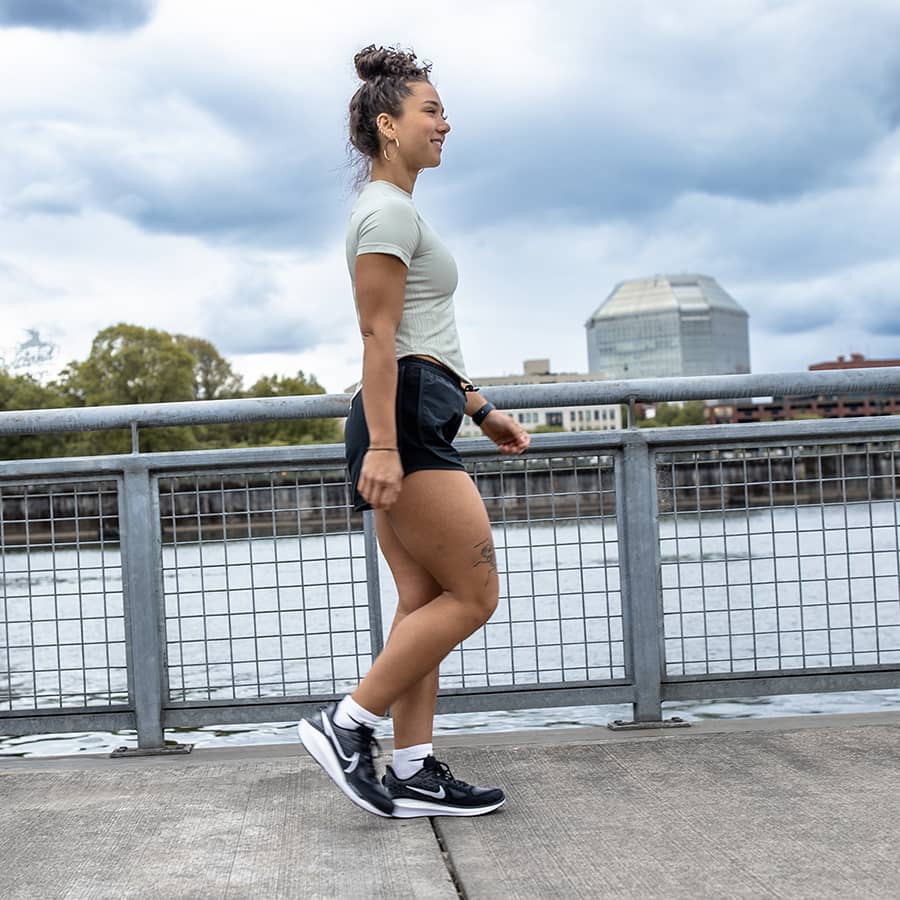
Real-World Experiences: Testimonials
Construction Worker’s Choice: Skechers Work Sure Track
“I’ve been a construction worker for over a decade, and Skechers Work Sure Track has been a lifesaver. The memory foam feels like I’m walking on clouds all day.” – Mike, 38
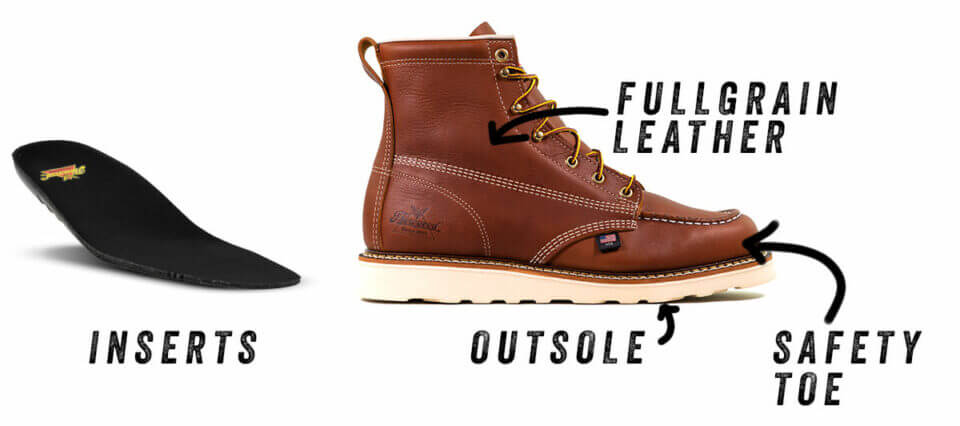
Retail Employee’s Journey: New Balance 626v2
“Standing all day on the sales floor was tough until I tried New Balance. They are incredibly lightweight, and I no longer have sore feet at the end of my shift.” – Sarah, 27
Warehouse Worker’s Appreciation: Timberland PRO
“These boots are sturdy. I love the arch support they provide. I can handle long hours without pain in my feet or back.” – John, 45
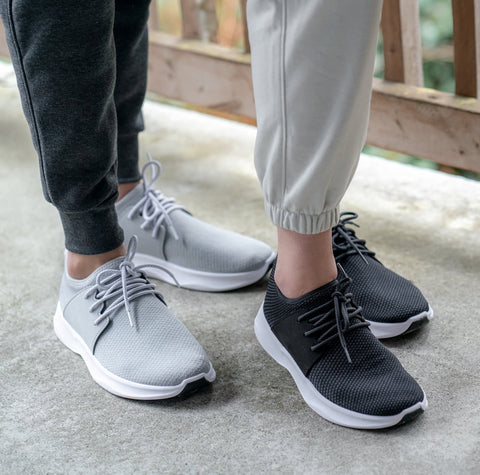
Tips for Choosing the Right Shoe for Concrete Work
1. Try Before You Buy
Always try on shoes in the store. Walk around to see how they feel. Ensure there’s enough toe room and that they fit snugly without being too tight.
2. Prioritize Comfort
Don’t compromise on comfort. Shoes that feel good when you try them on will likely feel great after several hours of wear.
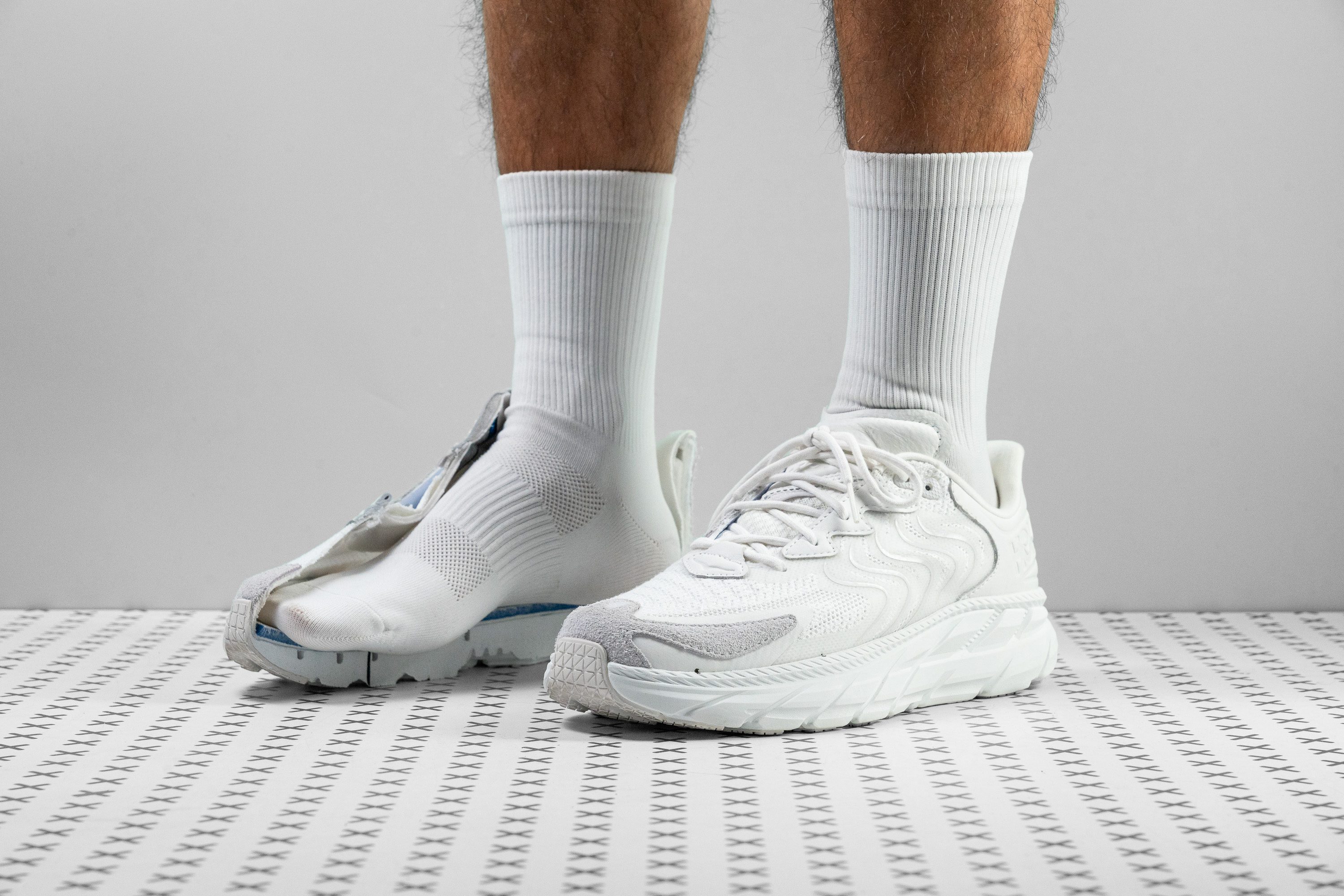
3. Consider Upgrades
If you find certain shoes lack in cushioning or support, consider investing in aftermarket insoles for additional comfort.
4. Check Return Policies
Before purchasing, check the return policy. Buying from a retailer that allows returns can save you a hassle if the shoes don’t work out as expected.
FAQs About Shoes for Working on Concrete
1. What type of shoes are best for working on concrete?
The best shoes for working on concrete include those with cushioning, arch support, stability, slip resistance, and breathability. Look for specialized work boots or athletic shoes designed for prolonged standing.
2. How can shoes help reduce foot pain?
Good shoes provide cushioning and support, which can alleviate pressure on your feet and reduce pain caused by hard surfaces like concrete.
3. Are steel-toe shoes necessary for all jobs?
Not all jobs require steel toes; however, they can be essential in environments where foot injuries from falling objects are likely.
4. Why are slip-resistant shoes important?
Slip-resistant shoes prevent falls and injuries on slippery surfaces, which is particularly important in work environments where spills may occur.
5. Can I wear running shoes for work on concrete?
While running shoes can be comfortable, they may not provide the necessary support and durability for work environments. Choose purpose-built footwear for concrete.
6. How often should work shoes be replaced?
It’s recommended to replace work shoes every 6-12 months, depending on wear and tear, to ensure optimal support and comfort.
7. What’s the best way to break in new work shoes?
Wear them around the house or for short periods at work to gradually break them in without causing discomfort. Avoid long shifts in new shoes initially.
8. Are high-top shoes better for support?
High-top shoes provide more ankle support, which can be beneficial for some individuals, but personal preference and comfort should guide your choice.
9. Is it worth investing in more expensive shoes?
Investing in quality shoes can save money in the long run by reducing foot pain and injuries, enhancing productivity, and offering better longevity.
10. How do I clean my work shoes effectively?
Cleaning methods vary by material. Generally, using soap and water with a soft brush can help maintain the appearance and functionality of your shoes.